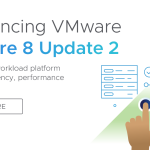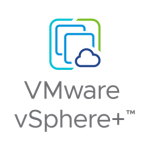Within the virtualization community we have been seeing more and more people adopting ESXi. Not only adopting it but also actively evangelizing the use of ESXi over ESX classic. The main argument being of course the reduction in operational effort involved with maintaining the platform. Last week two excellent articles were published. The first article was by Bob Plankers of LoneSysAdmin.net fame. Bob wrote an excellent article countering all often heard complaints about ESXi.
A Compendium of Concerns About ESXi (source)
Over the last few months I’ve been cataloging the complaints I’ve heard about the deprecation of VMware ESX, in favor of ESXi. I’ve been running 100% ESXi since shortly after the vSphere 4.1 release. In the words of Samuel L. Jackson as Jules in Pulp Fiction, “well, allow me to retort!”
“I have software installed on the Console OS, and I need to keep doing that.”
ESX wasn’t really a Linux box, it was an appliance. Sure, in a lot of ways it looked like a Linux box, but it was missing a lot of useful packages, with no maintainable way to add them. Yes, you could copy the RPMs from Red Hat Enterprise Linux, but then you’d have software installed on the machine you’d have to patch manually. You also run the risk of conflicts, support issues, and general chaos. You were better off from the start if you defined it as ESX, not Linux, and considered the console OS a hypervisor delivery method. Nothing more.
The appliance-like nature of ESXi is way more pronounced than ESX was. I applaud them for reducing the surface area of their products, and also reducing the amount of time and effort needed to maintain software packages that are irrelevant to the hypervisor. When it comes down to it, by embracing the appliance-like nature of the product you open yourself to all the cool new possibilities, like disklessness or replacing traditional drives with SD cards, autoconfigured PXE-booted stateless hosts, central configuration, patching by just rebooting, etc.
I am confident that after reading this excellent article by Bob all the reservations you might have had are gone. However, it probably isn't just you who makes the decision, if you need formal approval the following well written letter by Eric Siebert (vsphere-land.com) might come in handy. Here's a short quote from the letter that Eric published on Techtarget.com which also happens to be available for download as a Word document.
ESXi also has several advantages over ESX. New versions, for example, are delivered as a single image file that completely replaces the previous version, much like a server BIOS upgrade. As a result, we no longer have to worry about patch dependencies or installing patches in a specific order. Patching is much simpler, fewer patches are required, and ESXi should reduce the time and effort required to keep our hosts patched.
Another advantage is that the ESXi management console code is much smaller than ESX's full Red Hat service console. Additionally, rolling back to previous ESXi versions is a breeze. The old version is automatically saved in a backup partition, so you can easily revert to it if needed.
We want to thank Bob and Eric for these excellent articles. If you have recently migrated or are on the verge of migrating let us know, share your experiences and help others making this next logical step in the journey of making datacenter management more efficient.















